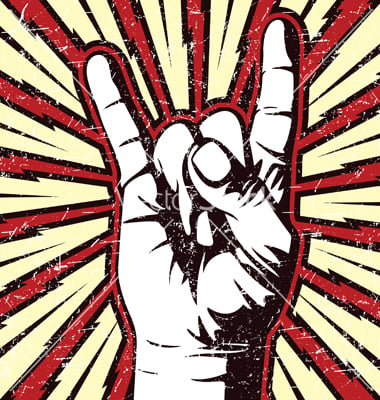Where does the word alphabet come from?
The word alphabet comes from the first two letters of the Greek alphabet: alpha and beta. It was first used, in its Latin form, alphabetum, by Tertullian during the 2nd–3rd century CE and by St. Jerome.
I woke up at 7:00 a.m. for this and had a sudden moment of clarity out of absolutely nowhere. Thank you.
These little epiphanies are always fun. Like when you realise how many maths and astronomy terms are just romanised Arabic words like Algebra and Algorithm.
Another fun one that I wasn’t smart enough to notice on my own is that the Hindu-Arabic numerals have the same number of angles in the symbols as the number they represent.
It’s a Christmas miracle! 😉
You had a Sudden Clarity Clarence moment, but you don’t think in memes.
So calling it your ABCs when you’re younger isn’t that far off. Interesting.
Pretty much. English borrowed it from Latin because it’s posh. And Latin borrowed it from Greek because it’s posh. But at the end of the day it’s in the same spirit as “the ABC”, or Latin “abecedarius”.
And the Greeks took it from the Phoenicians where it was Alep Bet (almost identical to the Hebrew Aleph Beth).
And these are words that start with the sound of the letter. Aleph means Ox and Beth is house.
It’s also “ABC” (“ábécé”) in Hungarian. (And I bet in a lot of other languages too.)
Then why do Abacuses help us count instead of spell? 🤔
Coincidence. The word backtracks to Greek ᾰ̓́βᾰξ / ábax “board, slab”, it doesn’t have to do with ABC.
Abacus comes from the Greek “Abak” meaning board or slab.
- Abaci
deleted by creator
It’s abecedario in Spanish (ABCDs). I’d imagine the -rio is like diccionario, which is like a collection.
It is kind of the same suffix but the story is a mess.
That -ario and all words using it are reborrowed* from Latin. And originally it was two related suffixes, fulfilling two purposes:
- masculine -arius, feminine -aria: transform noun into adjective. Like “a be ce de” (ABCD) into “abecedarius” (alphabetic).
- neuter -arium: noun denoting a place for another noun. Like “dictio” (saying) into “dictionarium” (dictionary, or “where you store sayings”)
Except that Latin allowed you to use an adjective as if it was a noun (Spanish still does it), so that “abecedarius” ended as a substantive again. And Spanish merged Latin masculine and neuter, further conflating both versions of the suffix.
*the inherited doublet is the -ero in llavero (place for keys) and herrero (related to iron - professions took the suffix and systematised the re-substantivisation).
Similarly, the viking rune “alphabet” is called the Futhark, because the first letters are pronounced F, U, Þ, A, R, K.
Wow, I can’t believe I never put that together before.
Shower thought material right there
yes.
source: can speak Greek.
Also the first two letters of the Greek alphabet are άλφα (alpha) and βήτα (beta)
Not that different from us talking about “learning our ABCs”.
If it isn’t, then where else would the word “alphabet” come from?
Oh wait, you could look at the Hebrew alphabet and pretend that the word came from its first two letters: Aleph and Bet.
This is what I thought. From Hebrew.
From Phoenician actually
From Egyptian Hieroglyphs actually.
Which the Phoenicians turned into letters, which eventually became our letters.
Look, A is a lil upside down cows head hieroglyph.
In all honesty, I don’t know which of the two languages is older.
Hebrew is slightly older than Greek but it was also more isolated than Greek and likely did not have much influence on Greek. As another commenter pointed out, Phoenician is the accepted source for the Greek alphabet.
I guess that answers that.
No, it’s a noun made from the portmanteau of the first two letters of the greek alphabet
Technically correct
The best kind of correct.
There’s a series on Prime via The Great Courses Collection about the origins of language. (Almost?) all languages derive their names like this, but that’s like, a throw away line in a much deeper series.
Many Indian languages use some version of ‘akshara’, which means ‘unchanging’ or ‘indestructible’. (I guess the alphabet does change, but too slowly for us to notice.) Most Indian languages start the alphabet with all the vowels, so ‘first n letters’ would be unpronouncable.
Azbuka, name of the cirillic script, also comes from the old names of the first two letters.
Yeah
No, it’s named after the cereal
Completely wrong as is clearly named after Google parent company Alphabet
Yeah. Little known fact, they named their company after their original product, but struggled with how to turn in profit, so they created a Google subsidiary which invented a search engine. True story.
I googled alphabet and apparently google got alphabetted 8 years ago?
They had the disadvantage of not being able to read until then, but look how quick they’re moving now.
I never thought of it before, but it is a conjunction of those first two Greek letters. Or else, it’s named after the soup it resembles.











